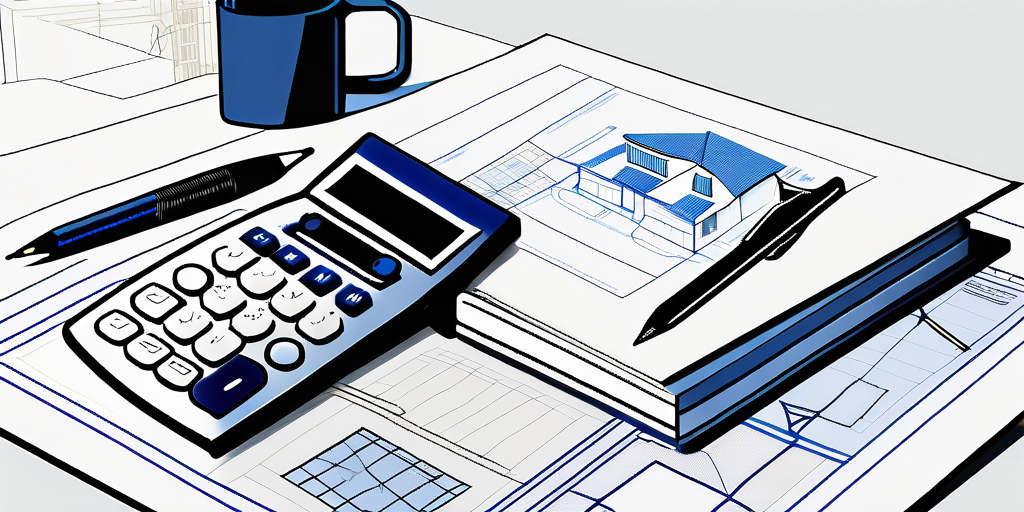How to Create DIY Real Estate Contracts: A Step-by-Step Guide
Creating a real estate contract can seem daunting, but with the right guidance and a bit of knowledge about its components, it can be a straightforward process. In this guide, we'll cover everything you need to know to draft effective DIY real estate contracts that suit your needs, whether you're buying or selling property.
Understanding Real Estate Contracts
Real estate contracts are legally binding agreements that outline the terms of a real estate transaction. These documents are crucial because they provide a clear and enforceable record of what both parties have agreed to. From deposit amounts to closing conditions, every detail plays a significant role. The clarity provided by these contracts helps to minimize misunderstandings and disputes, ensuring that both parties are on the same page from the outset.
Importance of Real Estate Contracts
The primary function of a real estate contract is to protect both the buyer and the seller. For buyers, a well-drafted contract ensures that they have recourse if the seller fails to meet their obligations. Conversely, it ensures sellers that the buyer is committed to the purchase. For instance, in a scenario where a buyer backs out of the deal without a valid reason, the seller can retain the earnest money as compensation. Additionally, these contracts often include contingencies, which are conditions that must be met for the sale to proceed. Common contingencies include home inspections, financing approvals, and appraisal results, all of which serve to safeguard the interests of the buyer.
Key Components of a Real Estate Contract
Key components that must be included in a real estate contract include:
- Identification of the parties involved
- Property description
- Purchase price and payment terms
- Closing date
These elements collectively create a framework that defines the expectations and obligations of both parties throughout the transaction process. Furthermore, it is essential to include clauses that address potential issues that may arise, such as default provisions and dispute resolution mechanisms. These clauses can outline the steps to be taken if one party fails to fulfill their obligations, thereby providing a roadmap for resolution. By anticipating challenges and addressing them within the contract, both parties can proceed with greater confidence and security, knowing that there are established protocols in place should complications occur.
Preparing to Write Your Contract
Before putting pen to paper, it's essential to prepare adequately. This preparation can save time and help clarify your intent before drafting the contract.
Gathering Necessary Information
To create a comprehensive real estate contract, start by gathering all relevant data about the property. This includes the property title, zoning information, and any disclosures mandated by state law. For instance, if you're selling an older home, you may need to disclose any issues related to lead paint or plumbing complications.
Deciding on Contract Type
Different real estate transactions may necessitate various types of contracts. For a straightforward sale, a simple purchase agreement may suffice. However, for a lease-to-own arrangement, a lease option may be more appropriate. Keep in mind your specific situation and choose accordingly. For example, if you are a seller who wants to provide the buyer with time to secure financing, drafting an option contract could be beneficial.
Drafting Your Real Estate Contract
Once you have all the necessary information, it’s time to draft the contract itself. This is where you can express the real terms of the agreement.

Outlining the Agreement
Start with an outline that highlights key terms. This includes parties' names, property description, and the purchase price. Make sure that all agreements regarding contingencies and timelines are clearly stated. This can prevent misunderstandings later in the process. For example, if a buyer needs to sell their current home before closing on the new purchase, that needs to be explicitly stated in the outline.
Detailing the Property Description
The property description needs to be precise and legally adequate. It should include the property address, lot size, and any specific features of the home that might influence the sale, such as a swimming pool or finished basement. This will help avoid potential disputes over what is included in the sale.
Stating the Purchase Price and Terms
Clearly state the purchase price and the terms of payment. For example, if a buyer is putting down a 20% deposit, the contract should specify that along with the balance due at closing. Providing an escalation clause can be beneficial in a competitive market, which states that the buyer is willing to increase their offer if another higher bid comes in.
Adding Essential Clauses
Several essential clauses should be added to protect both parties throughout the transaction.

Financing and Inspection Clauses
Include financing clauses that stipulate the buyer's obligation to secure funding within a reasonable time frame. Additionally, having an inspection clause allows the buyer to have the property inspected before finalizing the sale, providing a safeguard against hidden defects. For instance, if an inspector finds a damaged roof, the buyer may renegotiate the price or request repairs before closing.
Contingency Clauses
Contingency clauses are essential as they outline scenarios where the buyer can back out of the contract without losing their earnest money. Common contingencies include financing or inspection results. If a seller understands these contingencies, they can make informed decisions about accepting offers.
Closing and Possession Clauses
Finally, include clauses regarding the closing date and when the buyer will take possession of the property. This sets clear expectations and minimizes potential conflicts. For example, if the seller needs time to move out after closing, that should be clearly stated in the contract.
Reviewing and Finalizing Your Contract
Before you sign the dotted line, take the time to review your contract thoroughly.

Proofreading for Errors
Errors can lead to significant legal complications, so proofreading is essential. Check for typos or misrepresented facts that could lead to misunderstandings. For instance, mismatched property descriptions can invite disputes.
Legal Review and Considerations
Consulting with a legal expert can provide additional assurance that your contract is enforceable. They can point out potential issues that you may have overlooked and ensure compliance with local laws.
Signing and Executing the Contract
Once you've confirmed everything is in order, it's time for both parties to sign the contract. This is a crucial moment; make sure you understand all clauses before execution. Having witnesses can also be beneficial for added security.
Creating a DIY real estate contract demands attention to detail, but with the knowledge outlined in this guide, you're equipped to draft a contract that meets your requirements, ensuring a smoother transactional experience.
Ready to Sell Your Home Without a Realtor?
Now that you're equipped with the knowledge to create your own real estate contracts, take the next step towards selling your home with confidence. Visit SmartSellersMatch.com to get your instant FSBO Market Score and discover how you can maximize your sale's potential. Our platform provides the essential information and documents you need to sell successfully and avoid common pitfalls. Don't just sell your home, sell it smartly and pocket more profit from your sale!





